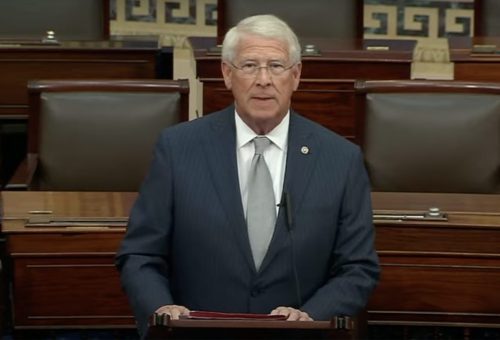
The bill passed in the state Senate seeks to ensure no curriculum is taught that promotes the superiority of one race or group over another.
Mississippi legislators are turning their focus to Critical Race Theory (CRT) curriculum and whether or not it has a place in state public school education. For some Senators, that answer is no.
Senator Mike McLendon (R) filed SB 2113 which would essentially prohibit the generally accepted ideals of CRT from being taught in any public schools, including charter schools and universities. The bill was passed out of committee on Thursday with an amendment to add community colleges to the list. It then passed in a floor vote in the Senate early Friday morning by a vote of 32-2.

The bill specifies what exactly is prohibited, which would include any teaching that “any sex, race, ethnicity, religion or national origin is inherently superior or inferior or that individuals should be adversely treated on the basis of their sex, race, ethnicity religion or national origin.”
The bill also prohibits any use of funding to the State Department of Education for any entity under their purview for purposes that would violate what is outlined in the bill. If passed by both chambers and signed by Governor Tate Reeves, the bill would become law immediately.
“This is a simple bill saying that no one is inferior or superior to another regardless of your sex, race, religion, ethnicity or origin,” said Senator McLendon.
He said the bill is a change on an administrative level and was something he was contacted about by many constituents. He added during floor discussions that this would not prevent students from learning the history that pertains to racism and slavery.
Freshman Senator Rod Hickman (D) challenged that this bill does not address Critical Race Theory. However, McLendon said on the floor that this bill represents what CRT is to him and the 20 other members that co-authored the legislation. That assertion was backed by Senator Chris McDaniel (R), who said it is often difficult to define CRT because it is often a theoretical subjective framework by which education is applied.
Mississippi is not alone in the conversation surrounding CRT. It has become an explosive topic that has caused disagreement among politicians on either side of the isle across the nation.
Critical Race Theory is looked at as an academic concept whose core idea is that race is a social construct, and that racism is not only a product of a personal bias or prejudice but something that has been weaved into the legal and political system ever since the Civil Rights movement. These lines of prejudice can touch things from zoning for housing based on a majority of racial ethnicity to links throughout political powers and organizations.
Those who are often opposed to the teaching of CRT claim that at its core it leads to negative dynamics between those of different racial, socio-economic, and gendered backgrounds. Many claim that the teachings divide people into the “oppressed” or the “oppressor” which increases intolerance where there is difference.
However, the line of what is really included in CRT is not clearly drawn. Nationally, those in opposition to the teaching have largely been Republicans with some conservative organizations pushing for a stop to CRT.
According to Education Weekly, the disagreement over CRT comes from different concepts of racism. CRT emphasizes outcomes, not just from individuals’ personal beliefs, and calls for them to be looked at and rectified. The disagreements continue as to how to best to rectify these actions or points of view.
While many educators do support culturally relevant teaching to a degree, the debate over how and when to implement these matters into curriculum and whether or not they are CRT related still stands in question.
So far, legislation has passed in Idaho, Iowa, Oklahoma, Tennessee, Arkansas, Florida, and New Hampshire. Recently, Republican Governor Glenn Youngkin in Virginia used an executive order within one day of being sworn in to ban “postmodern racism” from the classroom. Sixteen other states, not including Mississippi, are currently in the works with an attempt to ban CRT. While many of the states banning the teaching do lie in the South where typically more conservative individuals live, it is worth mentioning that heavily Democratic states like Pennsylvania, Washington, Michigan, and Rhode Island are also working to see the curriculum stopped.
Delaware is the only state so far to pass legislation positively affirming the intention to have CRT teaching presented in schools.











